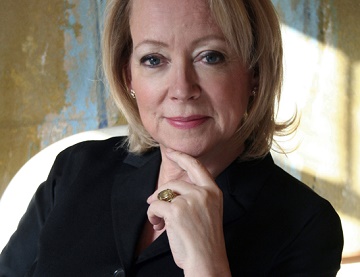Lynda Gratton: It's important to stand up to the CEO
- 6 Min Read
Lynda Gratton explains the three key characteristics HR professionals need to be a good business leader and why it is important to push back on the CEO.
- Author: HRD Connect
- Date published: Nov 10, 2016
- Categories

Lynda Gratton explains the three key characteristics HR professionals need to be a good business leader and  why it is important to push back on the CEO.
why it is important to push back on the CEO.
She also explains why HR should be freeing the ideas of people in organisations and the challenges of technology and longevity.
Gratton, a Professor of Management Practice at London Business School, Fellow of the World Economic Forum and author of eight books on business practice, was speaking to HRD Connect ahead of her keynote session at the HRD Summit 2017.
What is the biggest opportunity facing the HR profession right now?
The biggest opportunity facing the HR profession right now is to future proof the organisation.
Right now, we’re in a time of very substantial changes – I’ve written about technology and longevity changes in my most recent books – and much of these changes will require fundamental reshaping in the way people work, in the contracts they have between themselves and the organisation and indeed in the shape and structure of an organisation as well.
So it’s absolutely crucial that the HR function develops an understanding of these trends and is able to articulate what they mean for the company and bring some of those into action planning.
What is likely to have the greatest effect on the work of HR teams: business strategy or government policy?
I don’t think it’s either-or really.
When I wrote The Living Strategy 20 years ago I described the HR strategy completely responding to the strategy of a company.
But given time I’ve realised that organisations work in complex situations, some of which are shaped by global trends – things like technology and longevity – but that of course is shaped by government policy.
We see regulation has played a big role what organisations can do and more specifically if you look at what Brexit could do now and the whole anti-globalisation agenda that we’re seeing affects an organisation.
I wouldn’t say that one is more important than the other. Clearly the most important thing for a company is to get its HR strategy aligned with its business strategy, but to do that without realising there are government issues would be foolish.
Where can HR make the biggest difference in an organisation?
There’s a growing understanding, particularly with the development of AI and robotics, that because most of the routine stuff can be done through AI or robotics, what’s incredibly important is an organisation being able to liberate people’s ideas and creativity and energy and vitality, and that building a context which creates that is the most important role the HR function plays now.
For example, building more flexible working practices, creating a working environment that people find joyful, it means helping people build their knowledge and their skills so they are always feeling confident about their future.
This is what I believe to be the focus of an HR function these days.
What is the biggest transformation coming to the world of work?
I find it hard to say what the biggest is – in the last five years of my working life I’ve written about the impact of technology and longevity.
I think for me it’s not so much about the trends themselves, it’s how they work together.
For example – if you think about working until you’re 80, which a lot of young people will be doing now, and you factor into that massive technology change then it’s perfectly clear people have got to build these capabilities throughout their lives. So I think it’s a combination of things for most people and not necessarily the changes itself.
How should HR leaders be preparing their teams to build the organisations of the next decade. What skills are most necessary?
Every HR individual needs to have deep expertise in one or two particular areas.
Building specialist skills is valuable and important, and beyond that there are things that HR needs like the future looking.
They also need the ability to build networks and to manage stakeholders.
What’s very interesting is how complicated the HR stakeholder groups are that people work in so they need to know about stakeholder management and also the influence of networks.
One of the big areas of development over the last 25 years has been networks and helping people understand how networks affect their relationships.
What are the three key personal characteristics/traits that someone must have to become a successful HR and business leader?
I’m very interested in this idea of leadership being a combination of competence and warmth.
That combination of competence and warmth is a very strong combination.
I see it in HR directors when they do best: they have the competence so they know about the business and they understand it, they’ve learnt something, but they also have integrity and warmth towards people and that’s an incredibly strong combination.
I would also say to have a curiosity about the world.
The world is changing so quickly that if a HR director only looks inside they don’t learn much about what’s shifting – they need to be curious about what the world is and need to be intrigued by what’s changing.
How can HR leaders ensure they are recognised as important business partners among boardroom colleagues?
They do three things:
First they have an in depth understanding of the business (much like a finance director would have and they can talk about the business quickly.
Second one of the mistakes HR directors make is the agenda they have is too complex and too long – instead at any point in time they bump into a CEO they should say these are the three things we can be working on.
And then the third is that they are prepared to speak out.
In many ways the CEO chooses the HR director they want, and I’ve seen CEOs who have chosen very tame HR directors because they don’t want to be pushed back, but I think pushing back is a really important part of being in that boardroom.
As long as you know what you’re talking about and are focused on the one or two things that can make a difference, I think speaking out is really important.
Hear from Lynda Gratton on how HR can be an active participant in Building Intelligent Organisations at the HRD Summit 2017.









